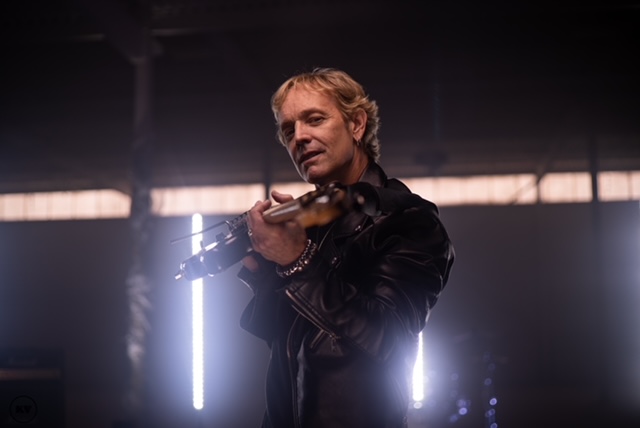So having survived the assault on my credibility by listing my top 10 music-based movies of all time, I will now firmly position my head on the chopping block for a second time by revealing my Top 10 worst music-related movies of all time. I could make this list easy by listing off any 10 Elvis Presley movies but that wouldn’t be any fun – so let’s agree to leave ole Elvis Aaron alone and maybe list off his best/worst movies at another date.
Again these are my Top 10 worst movies so you, my loyal readers, can vent your spleen by listing off your worst movie selections in the comments section at the bottom of this feature. Concert videos and bio pictures are again excluded from my list but that is not to say they may figure in your lists. So as I place a dustbin lid on my head to deflect all the vitriol that is surely heading in my direction, here are my Top Ten Worst Music-Related movies.
01. THE DOORS
[youtube width=”600″ height=”338″ video_id=”xk8T3UCKTew”]
(Tri-Star Pictures, 1991) Running time 140 minutes. Directed by Oliver Stone – who was the movie’s main problem, according to the band’s keyboardist Ray Manzarek who was highly critical of Stone’s interpretation of their story. Fellow band members John Densmore and Robbie Krieger acted as technical advisors on the film but even they complained that Stone overruled their objections. The biggest complaint being that Stone’s movie focused almost entirely on lead vocalist Jim Morrison (played by Val Kilmer) and not on the band as a whole. Even Stone admits he dramatized certain events for artistic effect. This starts with a young Jim supposedly seeing a dying Indian on the side of the road during a family car trip through Death Valley which lead to an infatuation with Indian mysticism, a theme which pervades the movie.
From the band’s early meeting around Los Angeles’ Venice Beach area, to their early Whiskey A Go Go showcases, which sparked national exposure once “Light My Fire” was launched to radio, the movie then parallels Morrison’s decent into a psychedelic haze of drugs and alcohol as the band begins to enjoy global exposure and fame, culminating in the band’s appearance in Miami in 1970 where Morrison is busted for `supposedly’ exposing himself on stage. Morrison then quits the band and dies under mysterious circumstances, attributed to a drug overdose in Paris France.
Stone was always going to have trouble recreating the band’s turmoil on screen yet the liberties he took with Morrison’s character (even though Val Kilmer is credited with doing a fine job not only acting out Morrison but by also singing all the lead vocals) ultimately received a hostile reaction. Interestingly enough Cult frontman Ian Astbury was offered the role of Morrison but turned down the gig because he didn’t like Stone’s script. Astbury would go on to briefly front reconstituted Doors.
02. SGT PEPPER’S LONELY HEARTS CLUB BAND
[youtube width=”600″ height=”450″ video_id=”ewYSSOzZ8NM”]
(Universal Pictures 1978). Running time 113 minutes, Directed by Michael Schultz. Buoyed by his production success with Saturday Night Fever, Robert Stigwood felt he would have equal success concocting a rock opera movie combining the music of The Beatles from their Sgt Pepper’s Lonely Hearts Club Band and Abbey Road records. With a series of unfortunate casting decisions, Stigwood brought in an unknown director (Schultz) and a cast headed by The Bee Gees and Peter Frampton, neither of whom had acted before. Added to this was a hodgepodge of actors and comedians including Steve Martin, George Burns, Donald Pleasance and British comedic star Frankie Howerd with musical help from Aerosmith, Earth Wind And Fire, Alice Cooper and Billy Preston.
The pretext of the story was something to do with a reformed Sgt Pepper band (the Bee Gees) lead by Billy Shears (Peter Frampton) who is the son of the late, great Billy Shears (no people, I am not making this up!)who join forces to fight a corrupt music industry intent on nicking their instruments and destroying their Heart Land home. Critics absolutely shredded this mess with Janet Maslin of the New York Times noting “the musical numbers are stitched together so mindlessly that the music feels like and interminable variety show.”
Universal Music had such high hopes for the movie that they pre-shipped thousands of discs to retail in North America. Unfortunately both the move and the soundtrack bombed big time. Which lead to a new musical term “Shipping gold and returning platinum”. In other words, those records had babies!
03. GLITTER
[youtube width=”600″ height=”338″ video_id=”QaKxGrajnzY”]
(20TH Century Fox 2001) Running time 104 minutes, Director Vondie Curtis Hall. A classic example of a non-actor (Mariah Carey), stroking her ego by casting herself in the lead role of a movie she didn’t have the talent to carry. Yes Whitney Houston pulled it off in “The Bodyguard” but she had Kevin Costner to bounce off. Carey, on the other hand, doesn’t have an A-class foil to work off. The storyline is a miss-mash of music industry clichés which are dragged down by terrible acting. Carey plays Billie Frank, as an abandoned child who pursues a music career when discovered at a nightclub by DJ Julian `Dice’ Black (played by Max Beesley), a few years later, Record company exec, Timothy Walker (played by Terrance Howard) signs Billie Frank and her two dance friends as back ground singers for a new talent called Sylk (Padma Lakshmi). Turns out Sylk can’t sing and its Billie Frank’s overpowering vocals that dominate. So (shades of Milli Vanilli), Sylk’s hit single is re-recorded with Billie Frank’s lead vocals that Sylk lip syncs to.
Controversy breaks out when Sylk is exposed, Walker sells Billie Frank’s contract back to Black for $100,000 , Billie Frank then signs another major contract with another record company run by Gus Richardson (Dorian Harewood) but she doesn’t like the tasteless video and the fact her two back-up singer friends are eliminated from the video. Other music clichés pour into the plot; Black doesn’t pay Walker the money he is owed so Walker murders him. But before Black dies, he leaves a note for Billie Frank indicating how she can find her long-lost mother – cue big teary-eyed emotional ending (not really!).
Virgin Records was so sure Carey’s Glitter soundtrack would be a monster hit that they signed her to a $100 million dollar, multi-record contract. When the movie and soundtrack release stiffed, Virgin dropped the record and cancelled her contract. The movie itself, shot for $22 million only made just over $5 million at the box office, sending her career into a temporary skid – but, in the immortal words of Monty Python “it was just a flesh wound” and Carey successfully revived her fortunes.
04. TOMMY
[youtube width=”600″ height=”338″ video_id=”G4K_9WyQCgA”]
(Columbia 1975) Running time 108 minutes, Directed by Ken Russell. I am going to hear some screams of righteous indignation here but, as much as I love The Who and also love Pete Townshend’s ground-breaking rock opera, the movie treatment Tommy received was almost unwatchable. Yes the project was a tricky assignment for even the most accomplished director but Russell just took so many liberties with the story and so many of the principal actors were so badly miscast. I mean having Ann-Margret (as Nora, Tommy’s mother) and Oliver Reed (as Frank, Tommy’s step-father) carry a large chunk of the plot was so wrong. I mean every time Reed started to sing I wanted to run out of the theatre! Yes Elton John as the Pin Ball Wizard and Tina Turner as the Acid Queen add some credibility but overall, the story gets so bogged down in trying to deliver its message the movie itself becomes an endurance test.
Even the movie plot is changed from the rock opera. In the movie, Tommy (played by The Who’s Roger Daltrey) becomes deaf, dumb and blind after witnessing his mother’s lover (Reed) kill his father, Group Captain Walker (played by Robert Powell) who surprises them in bed together after returning from World War Two ( where he had being declared dead in action). In the rock opera, it’s the other way around (Captain Walker kills Frank). Tommy undergoes several pervasive treatments as his now guilt-ridden mother tries to find a cure. His skills at pin ball earn the family vast amounts of money, but it’s only when he smashes through a mirror that Tommy regains his senses. He turns into a religious messiah, preaching the virtues of sense depravation through pin ball, but his followers turn on him, and in an ensuing revolt, kill his mother and step-father (probably the movie’s highlight!)
Tommy did okay at the box office raking in $35 million on a $5 million investment and Townshend reclaimed the project, turning Tommy into a cottage industry of touring Broadway Stage Shows and Orchestrated versions of the soundtrack. A version even played this summer at the Stratford Festival and getting rave reviews.
05. ROCK OF AGES
[youtube width=”600″ height=”338″ video_id=”USxhXb5VC5E”]
(Warner Bros 2012). Running time 123 minutes. Directed by Adam Shankman,. Rock Of Ages may have been a successful Broadway play, not so much a successful big screen movie. All the components were wrong. A convoluted script, strange cast (Tom Cruise as an aging rock star?), a bunch of 80’s hits cobbled together in a series of mash-ups just didn’t jive with the public. Juliana Hough maybe a decent dancer but was not convincing as an up-and-coming singer. Same with Diego Boneta who may be a top Latin performer but couldn’t carry the role as Hough’s rock star protagonist. The plot evolves Hough as Sherrie Christian arriving in Los Angeles from Oklahoma City, gets robbed of her possessions, gets consoled by Boneta (as Drew Boley) who works at The Bourbon Room. Hudson gets Christian a job at the club which is in financial trouble.
Club owners Dennis Dupree (Alex Baldwin) and his sidekick Lonnie (Russell Brand) book aging rock star Stacee Jaxx (Cruise) to do his farewell gig with his band Arsenal. Further complications ensue, Drew thinks Sherrie has been seduced by Jaxx, (who was actually rejected by a Rolling Stone magazine reporter played by Catherine Zeta Jones) , they break up, he launches a boyband, Z-Guyeezz, they stiff, he joins Sherrie on stage with her band Wolfgang Von Colt, they patch things up, and later they celebrate Jaxx’s reunion with Arsenal at a major show at L.A’s Dodger Stadium. Overall, a major fluff production, bad acting and the only saving grace being a ton of classic 80’s hit songs. Box office wise, Rock Of Ages racked up just $59 million on a budget of $75 million.
06. JOSIE AND THE PUSSYCATS
[youtube width=”600″ height=”338″ video_id=”LU5bOAyDbHc”]
(Universal Films 2001) , Running time 98 minutes. Directed by Harry Elfont and Deborah Kaplan (who both wrote the screenplay), this spin on the Archie Comics characters sees Rachel Leigh Cook (Josie McCoy), Tara Reid (Melody Valentine) and Rosario Dawson (Veronica Brown) suddenly signed up by Metro Records’ Wyatt Frank (Alan Cumming) who has mysteriously appeared in their hometown Riverdale. It turns out that Metro Records is in cahoots with the U.S government to insert subversive messages into records sold to teens via their favorite teen bands. When the label’s current fave boy band Du Jour find out about the hidden messages, their tour plane mysteriously crashes, and Wyatt parachutes to safety, landing in Riverdale where he starts a search for a replacement band for Du Jour.
Vaulted to instant stardom, The Pussycats become Josie and the Pussycats under the control of label head Fiona (Parkey Posey) who is priming the band for a major pay-per-view performance that will feed subversive messages to both the live crowd and the television audience. With Josie now the dominant figure, Melody and Veronica find out about the subversive messages and are assaulted during a very bad sequence on Carson Daly’s MTV show. With her group mates, bound and gagged, Josie is forced to do the concert with a backup band, only for the Du Jour band members to arrive, gatecrash the concert and make a reveal on the subversive messages. With Wyatt and Fiona busted by the government, Josie and the Pussycats perform the concert and all is right with the world.
The whole idea of the Pussycats’ movie was to spoof product placement in films and to ridicule the idea of subversive messages. With a more intelligent plot, this idea could have been quite effective, but like the comic books which spawned these characters, the whole movie came off as cartoonish. The movie was also a bust at the box office, costing 39 million and producing only $15 million in revenue.
07. HELP
[youtube width=”600″ height=”338″ video_id=”qfsLvIOZgSo”]
(United Artists 1965) Running time 92 minutes, Directed by Richard Lester. It was almost inevitable that following their smash hit, budget debut, “A Hard Day’s Night, the Beatles would be pushed into a more expensive, colour, sequel, although not that much more expensive, $1.5 million compared to $189,000 for A Hard Day’s Night. Unlike the biographic nature of the original, Help delivers a silly plot about some eastern European cult about to sacrifice some woman to their God when they realize she is not wearing the sacrificial ring. The ring in question has been mailed by the victim-to-be’s sister as a present to Ringo Starr. Said cult then heads for London to retrieve the ring so they can proceed with the sacrifice. When John Lennon, Paul McCartney and George Harrison realize what’s going on, they attempt to remove the ring which is stuck on Ringo’s finger. The Eastern Cult members are joined by a bumbling police officer Clang (Leo McKern), some shrinking essence is involved and the Beatles escape to Switzerland and The Bahamas to involve themselves in mad-cap scenes which have nothing to do with the plot.
Filmed in a haze of marijuana which caused the Beatles to break up laughing at inopportune moments in the shooting, Lennon complained that the Beatles felt like extras in their own movie. “The movie was out of our control,” complained Lennon in 1970.”With A Hard Day’s Night, we had a lot of input and it was semi-realistic. But with Help (director) Dick Lester didn’t tell us what it was all about.” The movie received lukewarm reviews but still turned a profit of about $11 million, yet the soundtrack LP was a smash hit. Still the Beatles never made another full length movie, providing an appearance on only the final two minutes of the animated “Yellow Submarine” plus the documentary “ Let It Be” which showed the band finally unravelling.
08. RATTLE AND HUM
[youtube width=”600″ height=”338″ video_id=”akSOdch6m_w”]
(Paramount 1988). Running time 109 minutes, Directed by Phil Joanou, another choice which will probably stir up some controversy, yet even U2 themselves admitted they were being somewhat pretentious and egotistical during their 1987 Joshua Tree tour. Sales for their Joshua Tree album had gone through the roof, they were arguably the world’s top band at the time but when they hired Joanou, to document their U.S tour, U2 set themselves up for plenty of critical backlash. Initially, this `rockumentary’ was supposed to be a small budget affair, funded internally by the band themselves. Yet when they started to go over budget, Paramount stepped in and made their project a big-budget affair, suitable for big screen viewing.
The movie was supposed to capture the band’s exploration of American Roots Music yet footage of U2 recording at Sun Studios in Memphis and performing with the likes of BB King and Bob Dylan generated a negative response from critics who thought the band was trying to position themselves amongst the ranks of these artists.
The companion two-disc album sold a decent 14 million copies globally, fuelled by tracks like `Angel Of Harlem’ and `When Love Comes To Town’ yet the critical backlash to this project almost broke up the band. U2 realized they had become the antithesis of what they had originally stood for and knew they had to do a total rethink of their future direction The result was a trip to Berlin to record what would be a radically-different Achtung Baby in 1991.
09. THE RUNAWAYS
[youtube width=”600″ height=”338″ video_id=”uHpEJ749TRM”]
(Apparition 2010) Running time 106 minutes, Directed by Floria Sigismondi. Supposedly based on lead singer Cherie Currie’s autobiography, “Neon Angel; A Memoir Of A Runaway”, this bio-pic covers the linkup between guitarist Joan Jett (Kristen Stewart) and manager/Svengali Kim Fowley (Michael Shannon) who recruited Currie (Dawn Fanning), Lita Ford (Scout Taylor-Compton) and Robin (Alia Shawkat) after the real Jackie Fox refused to allow her name to be used. The movie basically focused on the relationship between Joan Jett and Cherie Currie (suggesting a lesbian relationship existed), the band jealousy over Currie commanding magazine covers in Japan and her spiralling drug addiction which eventually wrecked the band. Poor Lita Ford, who was arguably the most successful post- Runaway artist, hardly gets a mention in a plot that is so thin and so unconvincing – which is especially strange considering the story was based on Currie’s book. Despite a talented cast that boasted Fanning and Stewart (who had just starred in the first Twilight franchise), the movie had a budget of $10 million but still only pulled $4.5 million at the box office.
10. SPICEWORLD
[youtube width=”600″ height=”338″ video_id=”BmSBtOHzGPM”]
(PolyGram Filmed 1997) Running time 93 minutes, Directed by Bob Spiers, I actually felt sorry for The Spice Girls. Filmed at the height of their commercial success with a madcap plot that obviously imitated the Beatles’ A Hard Day’s Night, this convoluted story simply didn’t allow Geri Halliwell, Melanie Brown, Melanie Chisholm, Emma Bunton and Victoria Beckham to actually act in their own film. When they were given some scenes, they were genuinely funny (the flash forward to them as children-bound housewives complaining when the upstairs resident starts playing a Spice Girl song is epic). Yet the film is bogged down by so many subplots the movie becomes untenable. There’s the Rupert Murdoch-type newspaper mogul trying to ruin their career, the ham-handed documentary film-maker (Alan Cumming) screwing up every scene, American filmmakers George Wendt and Kids In the Hall’s Mark McKinney pitching crazy movie ideas to band manager Richard E Grant, the slave-driving record mogul, Roger Moore – and a kitchen-sink list of celebrities including Meatloaf (the bus driver), Elton John, Elvis Costello, Bob Geldof, Jennifer Saunders, Bob Hoskins, Hugh Laurie, all squashed into a 93-minute movie. Add to this, their actual on-stage performances and a loose plot about their crazy daily activities leading up to a major concert at London’s Albert Hall (oh! and did I mention the aliens?).
A Hard Day’s Night succeeded because of a minimal script that focused entirely on the Beatles. Conversely Spiceworld failed because Sporty, Scary, Posh, Baby and Ginger are just totally buried under the weight of a ridiculous, cartoonish plot and series of subplots. Ironically the movie was a great success at the box office pulling in over $100 million on a $25 million budget.
SO WHAT ARE YOUR WORST FIVE MUSIC MOVIES?
Leave a comment with your worst music-movie titles below, and we will endeavour to list a selection of your entries in future postings!















Comments are closed.